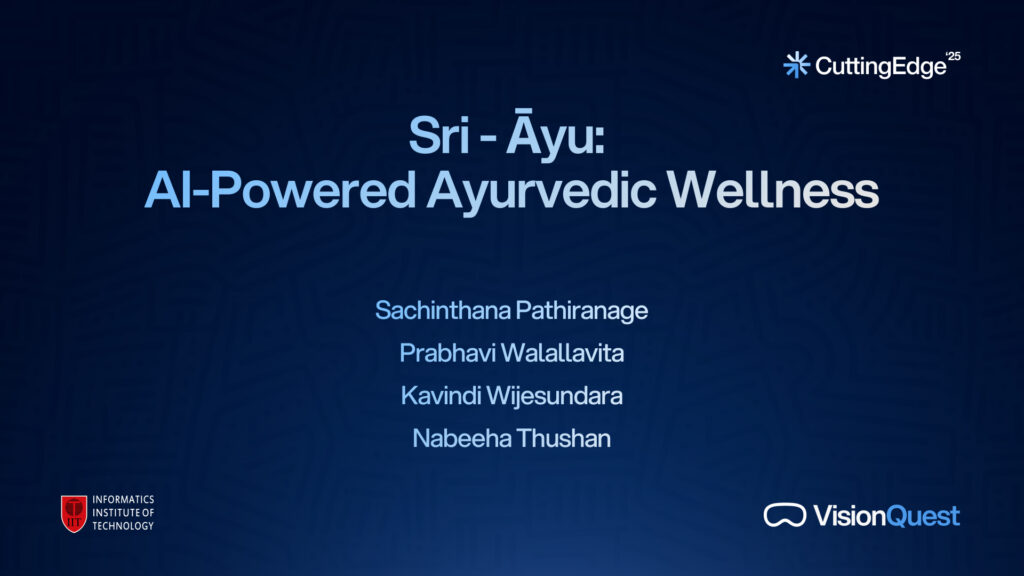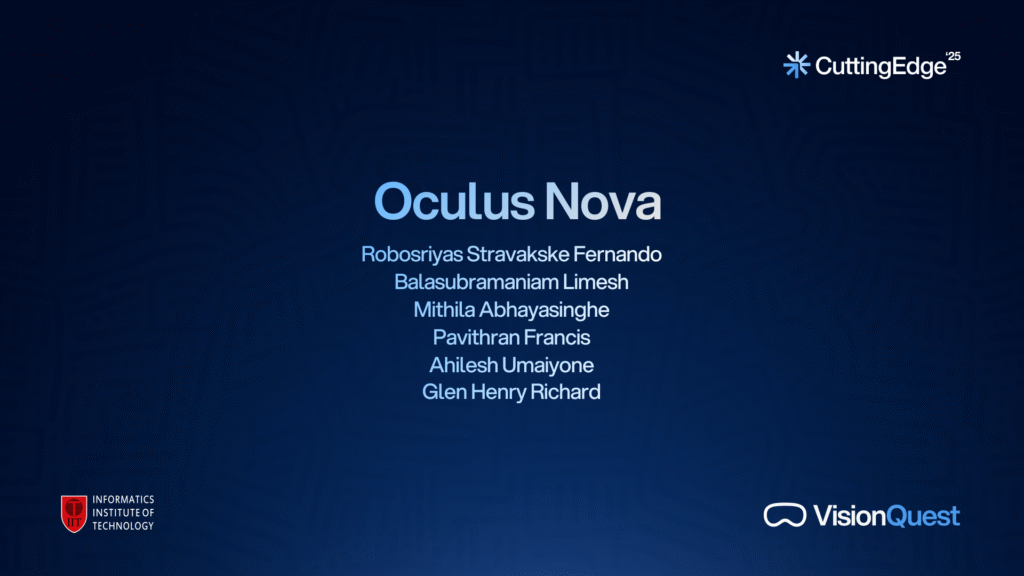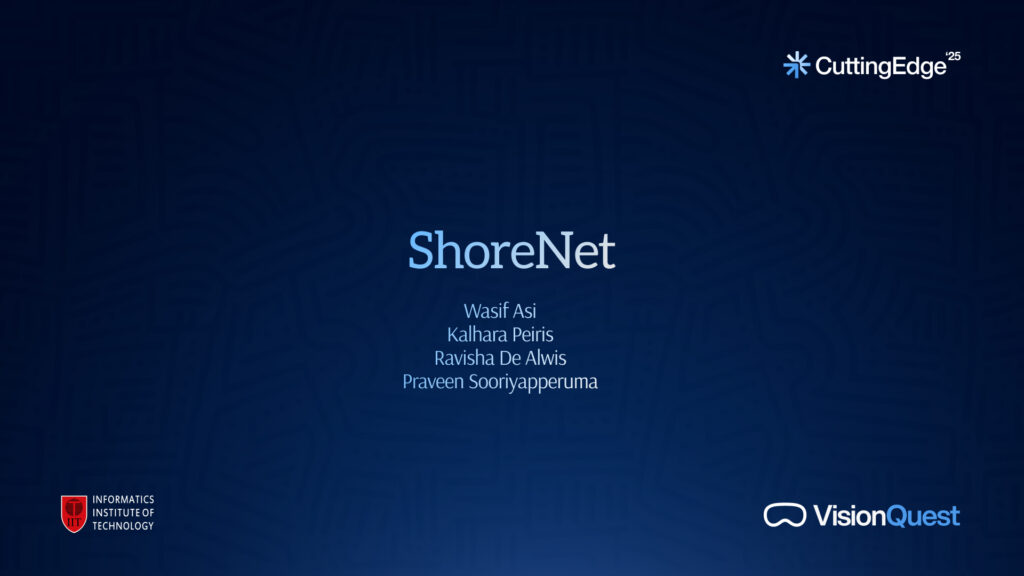CeyLand – Blockchain Based Land Document Management System

CeyLand is a blockchain-powered land document management platform designed to modernize and secure property ownership processes in Sri Lanka. Traditional land registration systems rely heavily on paper documentation, making them vulnerable to fraud, loss, and manipulation. CeyLand addresses these challenges by offering a secure, transparent, and immutable digital solution. The platform begins with a KYC verification process, ensuring that only verified users connected through their MetaMask wallets can access the system. Once verified, users can upload their land deeds, which are then reviewed by certified legal professionals to confirm their authenticity. Verified deeds are permanently stored on a decentralized blockchain ledger, ensuring they are tamper-proof and resistant to data loss or natural disasters. CeyLand also enables effortless land ownership transfers, where users can initiate transfer requests directly to buyers. These transactions are verified by trusted notaries and recorded on the blockchain for full transparency. Additionally, the system allows users to track the complete ownership history of any property, promoting informed decision-making and reducing disputes. CeyLand also provides access to legal professionals and a user-friendly resource center to help navigate Sri Lanka’s land registry regulations. Overall, CeyLand delivers a secure, efficient, and legally robust solution for property management.
Sri Āyu: AI-Powered Ayurvedic Wellness

Sri Āyu is an innovative AI-powered platform that integrates traditional Ayurvedic knowledge with modern data science to revolutionize holistic healthcare and wellness tourism in Sri Lanka. Ayurveda, while deeply rooted in culture and offering personalized care, often faces challenges in mainstream acceptance due to its reliance on subjective diagnostics and limited data validation. Sri Āyu addresses these gaps by introducing a unified, intelligent system that automates key Ayurvedic functions and delivers data-driven insights.
The platform comprises four main components: Dosha Classification, Disease Prediction with Personalized Treatment Recommendation, Treatment Outcome Prediction, and Ayurvedic Tourism Forecasting. Using machine learning models such as Logistic Regression, Random Forest, SVM, and XGBoost, it analyzes user inputs like body characteristics, symptoms, and demographics to accurately determine Dosha types, suggest tailored wellness plans, and predict treatment success rates along with expected recovery timelines. Additionally, it leverages time-series analysis to forecast tourism trends, supporting strategic decision-making for the wellness tourism sector.
Sri Āyu features a user-friendly web interface that connects patients, practitioners, and stakeholders in a seamless experience. It empowers Ayurvedic clinics, wellness seekers, and tourism boards with tools for evidence-based care and strategic planning. The project not only enhances the credibility and scalability of Ayurveda through technology but also promotes Sri Lanka as a global destination for holistic wellness. With potential expansion into telemedicine, wearable integration, and multilingual support, Sri Āyu sets a foundation for the future of AI-integrated traditional medicine.
CarCare++

CarCare++ is a smart vehicle management mobile application designed specifically for Sri Lankan car owners to simplify and enhance their vehicle ownership experience. With rising vehicle numbers and limited digital solutions, many owners struggle with missed service appointments, scattered records, and forgotten renewals. CarCare++ solves these issues by combining essential tools into a single, user-friendly platform.
The app offers a wide range of features, including automated service reminders, centralized digital document storage, maintenance tracking, and real-time diagnostics through OBD-II integration. A key innovation is the ML-powered dashboard warning sign recognition, where users can scan dashboard warning lights with their phone camera to receive instant explanations, severity ratings, and suggested actions.
Users can securely manage multiple vehicles, track expenses, and book services through the app. It also provides live vehicle health data such as engine load, fuel usage, RPM, and coolant temperature by connecting with a Bluetooth OBD-II adapter. CarCare++ uses technologies like React Native, Nest.js, Firebase, AWS to ensure a reliable and responsive experience.
Whether you’re a single vehicle owner or managing a fleet, CarCare++ helps you stay on top of maintenance, avoid costly repairs, and extend the lifespan of your vehicles while improving safety and peace of mind.
CeylonMine

CeylonMine is a pioneering digital platform designed as a case project to modernize and streamline mining operations in Sri Lanka, with a special focus on licensing, compliance, and environmental safety. Developed initially in collaboration with the Geological Survey and Mines Bureau (GSMB), CeylonMine addresses long-standing challenges miners face, such as complex licensing procedures, royalty confusion, and inefficient manual processes.
The platform introduces a License Application Wizard that simplifies the end-to-end application workflow, supports document uploads for land ownership and environmental clearance, and ensures form validation to minimize delays and rejections. It also features real-time license tracking, automated royalty calculation tools, and renewal notifications, all aimed at reducing physical visits and administrative burdens.
Beyond compliance, CeylonMine enhances transparency and safety through features like scam prevention (by monitoring extracted volumes), interactive mineral heat maps, and community safety alerts on environmental risks near mining sites.
As a case project, CeylonMine serves as a model for digital transformation in the mining sector with potential to expand into a national-scale platform and even scale globally. Future phases envision integration with IoT for real-time extraction data, AI for fraud detection, and blockchain for transparent recordkeeping. The broader potential lies in its scalability to support private contractors, construction firms, logistics providers, and even mineral export compliance, positioning CeylonMine as a digital backbone for the future of ethical and efficient mining, also including other sectors.
VenDoor

The VenDoor application is a fully functional mobile application designed to create a bridge between mobile vendors and their customers in Sri Lanka. The application provides a platform that is efficient for vendors to manage their businesses while enabling customers to locate and engage with their preferred mobile vendors in real-time. This prototype’s main functionalities are real-time vendor tracking, inventory management, mobile POS (Point of Sale) system and route optimization.
When looking into the application from the vendors’ perspectives, the application allows them to register their mobile business, update their live location, manage inventory, plan their daily routes effectively, and use a mobile POS(Point of Sale) system to make the billing process more convenient. The application also supports multiple languages, such as Sinhala, English and Tamil, ensuring accessibility to anyone in Sri Lanka.
VenDoor provides customers with an intuitive interface to search for vendors based on their product categories, current locations, or preferred vendors. The application shows a real-time map of the vendors nearby so that customers can time it well and come out before the vendors pass their location. Furthermore, customers also have the option to view the current inventory so they can determine whether the product that they are looking for is available.
VisuaLit

VisuaLit is an AI-powered eBook reader that redefines traditional reading by merging visual storytelling, audio narration, and contextual learning into a single, immersive experience. Designed to support both avid readers and those who struggle with conventional reading methods—such as individuals with dyslexia, ADHD, or aphantasia—VisuaLit transforms passive reading into an interactive, sensory-rich journey.
The core features of VisuaLit include real-time character and scene visualizations using generative AI, natural-sounding audiobook generation, and an inline dictionary for contextual word understanding. These functionalities are seamlessly integrated into a clean, customizable interface that supports multiple eBook formats (EPUB, PDF, CBZ). Users can personalize font size, themes, and playback options to suit their learning style and cognitive needs.
Built with inclusivity and cognitive accessibility at its foundation, VisuaLit targets a wide audience—from young learners and neurodiverse users to modern digital natives who prefer engaging, media-rich content. The solution not only encourages reading but also improves comprehension, vocabulary, and imagination.
What sets VisuaLit apart is its commitment to turning literature into a multi-sensory experience, bridging the gap between traditional storytelling and modern expectations. It has the potential to revolutionize reading habits in educational, recreational, and assistive contexts—making stories more vivid, learning more effective, and reading accessible to all.
Oculus Nova

Oculus Nova addresses the challenges in treating amblyopia, especially in children, where traditional methods like eyepatching and atropine drops often lead to low compliance due to discomfort, lack of engagement, and social stigma. This gamified vision therapy application aims to make treatment more interactive, enjoyable, and effective. Oculus Nova incorporates two distinct therapeutic approaches. The first encourages the use of an eye patch through a reward-based game system that detects whether the patch is worn—only granting access or in-game boosts if therapy compliance is met. The second approach utilizes red-blue 3D glasses to deliver layered visual stimuli: the amblyopic eye (red lens) perceives clearer game visuals while the stronger eye (blue lens) sees blurred content. This approach mimics occlusion therapy in a less intrusive, more engaging way.
To further improve therapy outcomes, Oculus Nova includes a progress tracker that logs user performance and logMAR readings, providing valuable insights for therapists and guardians to make data-driven decisions. The application also incorporates screen time monitoring based on the 20/20/20 rule—20-minute sessions, up to three times daily—to promote healthy visual habits and reduce digital eye strain. Using eye-tracking technology and gamified elements, Oculus Nova redefines vision therapy by enhancing motivation, engagement, and consistency. Ultimately, the project aims to improve vision outcomes while offering a more positive therapeutic journey for young users.
Skill2Skill

Skill2Skill is an innovative peer-to-peer skill exchange platform that revolutionizes professional development by connecting individuals through intelligent matching algorithms and personalized learning journeys. Unlike traditional one-size-fits-all upskilling solutions, our platform addresses the critical gap where over 80% of professionals need networking and personalized learning for career advancement but face expensive, generic options.
The platform operates on a unique mandatory skill exchange model where users both teach and learn simultaneously, creating mutual value and ensuring active community participation. Our advanced matching system connects users based on complementary skills and geo-location, facilitating highly personalized exchanges through structured 40-minute learning sessions.
Key features include real-time video chat, collaborative project tools, progress tracking with gamification badges, and community engagement forums. The platform serves diverse audiences including professionals, freelancers, students, career changers, and organizations seeking cost-effective talent development.
Our freemium business model generates revenue through premium subscriptions (LKR 2,599/month), Skill2Skill Academy courses, job postings, mentorship monetization, and collaboration posts. With a projected LKR 36 million revenue within three years and targeting 50,000 users, the platform is strategically positioned to capture the $370+ billion online education market.
Skill2Skill transforms skill development from expensive, isolated learning into an accessible, community-driven ecosystem that empowers professionals to thrive in the rapidly evolving digital economy through meaningful peer connections and collaborative growth.
Analyzing the difference in rates of changes of shoreline in critical regions of Sri Lanka

The Cutting Edge project delivers an end-to-end web application for automated shoreline detection and quantitative change analysis tailored to Sri Lanka’s most vulnerable coasts. Users upload two raw Sentinel-2 satellite images, which are first validated by an image classifier to ensure they contain a shoreline view. Next, the system applies deep-learning segmentation—evaluating four state-of-the-art architectures (FCN8, U-Net, SegNet, and Deeplabv3+)—to generate precise binary masks of land–sea boundaries, selecting the highest-accuracy model for downstream analysis Group 19.
Once segmented, the application computes two established metrics: End Point Rate (EPR), capturing the annualized rate of shoreline movement, and Net Shoreline Movement (NSM), indicating the total displacement between dates. These statistical models, driven by multi-temporal Sentinel-2 imagery spanning 2019–2023, enable robust identification of erosion and accretion hotspots and outperform purely manual or DSAS-based approaches by automating both image processing and trend forecasting Group 19.
An integrated chatbot guides users through the analysis workflow, answering domain queries (e.g., “What is EPR?”) and interpreting results, while an image-validation component prevents erroneous inputs. The platform’s interactive visualizations and downloadable reports—including georeferenced maps of shoreline change—empower researchers, coastal managers, and policymakers with timely, evidence-based insights to inform conservation strategies, coastal engineering decisions, and community-focused adaptation measures. By streamlining complex image-analysis tasks into a user-friendly interface, this system significantly enhances the efficiency and accessibility of coastal monitoring efforts in Sri Lanka.
LearnHeart

LearnHeart is an innovative educational platform designed to bridge the gap between rural schools in Sri Lanka and educational contributors such as volunteers and organizations. The platform was created in response to the growing disparities in access to quality education across different regions of the country. By aligning with the United Nations Sustainable Development Goal 4 (Quality Education), LearnHeart promotes inclusive and equitable learning opportunities for all.
The core functionality of LearnHeart enables schools, particularly in underserved areas, to submit seminar requests based on their subject-specific or skill-based needs. These requests are then visible to verified volunteers and organizations, who can respond by organizing and conducting seminars either in-person or virtually. The platform facilitates streamlined communication, efficient scheduling, and transparent tracking of educational activities.
LearnHeart is built using the MERN stack and LangChain, offering a modern and responsive user experience. Authentication is powered by Clerk, ensuring secure and personalized access for schools, volunteers, and organizational users. Additionally, the platform integrates an AI-powered skill assessment system that evaluates volunteer capabilities through CV analysis using Python-based machine learning techniques.
With its intuitive design and impactful mission, LearnHeart fosters a nationwide network of educational collaboration. It empowers rural students by connecting them with resources and expertise previously beyond their reach. Ultimately, LearnHeart aims to uplift educational standards across Sri Lanka by enabling a culture of knowledge-sharing, collaboration, and opportunity for all learners.
